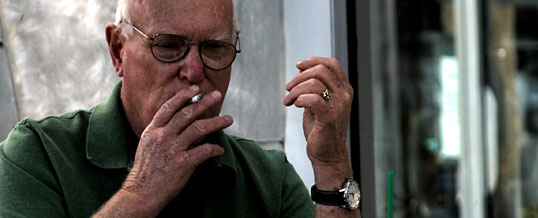The Centers for Disease Control (CDC) recently released the results from a national health survey concerning smoking in America that shared some promising information.
Perhaps the best news is that the percentage of the 35,000 adults surveyed who described themselves as current smokers has dropped. Unfortunately, America’s smoking rate only fell from 19 percent to 18 percent, and perhaps more troubling, is the information that about 9 percent of Americans 65 and older are smokers. It goes without saying that many of those seniors have been smoking for a long, long time.
Smoking is the leading cause of preventable illness and death in the United States. Most cases of lung cancer and many instances of heart disease are due to tobacco use, which causes some 5 million deaths per year worldwide and is the cause of approximately one in five deaths annually.
If you think about it, many longtime smokers have used cigarettes for more years than they’ve done anything else in their entire lives besides eating and sleeping. And while the addiction to cigarettes – which is more addictive than heroin – is a difficult habit to shake at any age, it’s got to be even harder on seniors.
The rationale used by most lifetime puffers is that after decades of smoking, surely the damage has been done, so why stop now? The CDC counters that argument by pointing out that as soon as someone quits smoking the body begins it’s recovery process.

Brian Carrigan
Founder & Co-Manager
Seniors who stop now reduce their risk of cancer and/or heart attacks, make exercise easier and more enjoyable, and dispense with other inconvenient side effects, including the tell-tale smoker’s smell. After quitting, in just a few months you’ll breathe easier. After one year, your risk of heart disease will be cut in half. And with some cigarettes running $5-$6 per pack, think of all the money you’ll be saving.
As is the case with any scenario involving addiction, it’s probably not a good idea to try to quit “cold turkey”. There are a variety of tried-and-true ways to give up smoking, and a visit to your personal physician to discuss the situation would be an excellent start.
Quitting smoking after years and years is going to be hard. It may hurt a lot for some, and maybe not so much for others. But it’s a challenge worth taking on – for your own life, and those who love you.




